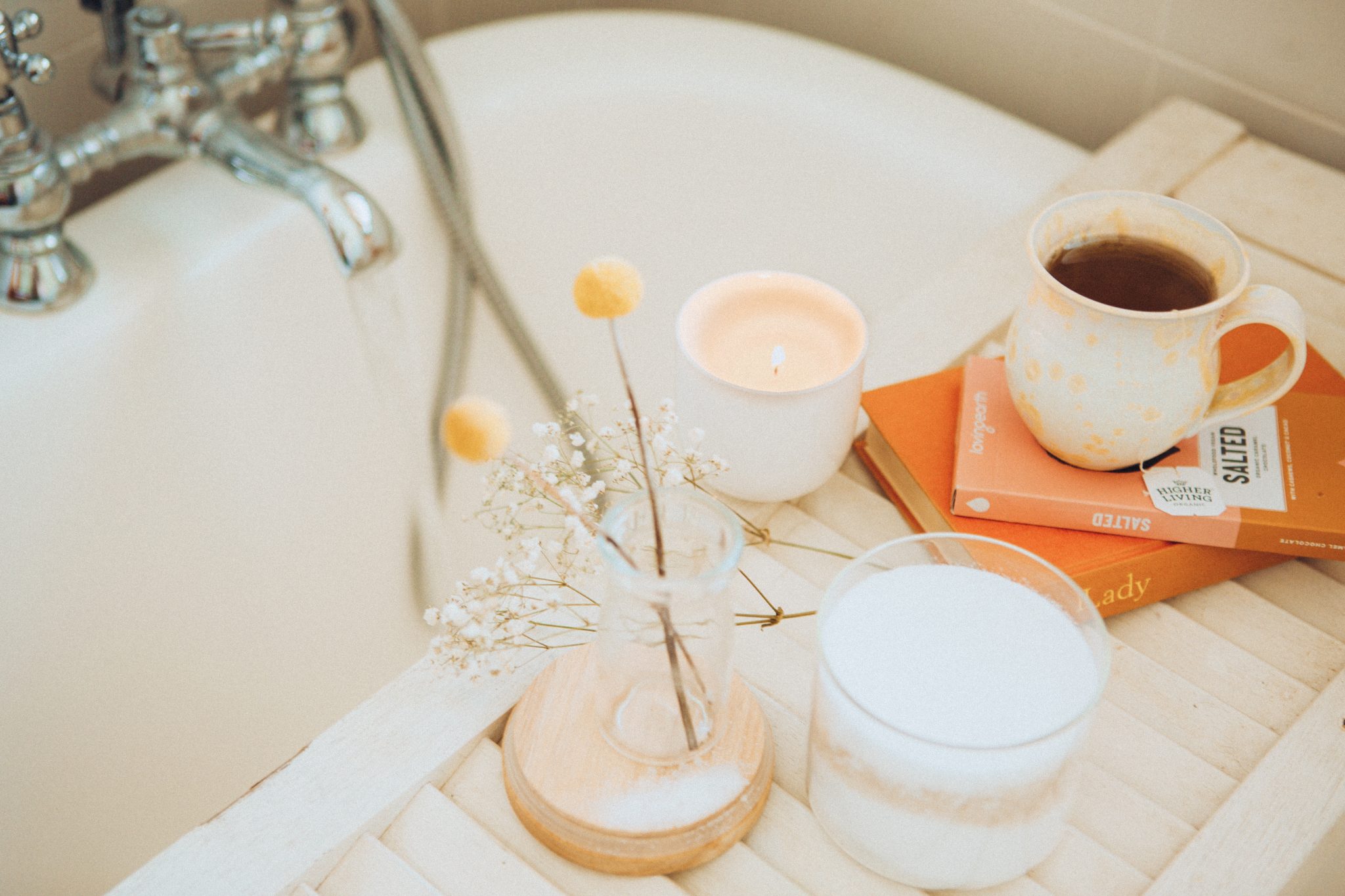
Self-care is important for several reasons. Firstly, it helps to maintain physical and mental well-being. Taking care of oneself through healthy habits such as regular exercise, eating nutritious food, getting enough sleep, and managing stress can help prevent illness and disease. Additionally, self-care can improve mental health by reducing stress and anxiety, improving mood, and increasing self-esteem.
Secondly, self-care allows individuals to recharge and take a break from the demands of daily life. By prioritizing time for oneself, you can prevent burnout, increase productivity, and improve your ability to cope with challenges.
Lastly, self-care promotes a positive relationship with oneself. It sends the message that your needs and well-being are important and deserving of attention. This can lead to greater self-awareness, self-acceptance, and self-love, which are important for building resilience and achieving personal growth.
In this post, we are looking at 10 self-care tips that help you take care of yourself physically, mentally, and emotionally.
1) Self Care Is Important
The first tip of self-care is to make it a priority. This means setting aside time for oneself and making self-care a regular part of one’s routine. Often, people prioritize the needs and demands of others over their own needs, which can lead to burnout and neglect of personal well-being. By making self-care a priority, you can ensure that your needs are being met and that you are taking the time to recharge and take care of yourself.
To make self-care a priority, it can be helpful to schedule it in your calendar or daily routine. This can be as simple as setting aside 15 minutes each day for meditation, going for a walk, or doing a relaxing activity such as reading a book. Additionally, it’s important to recognize that self-care looks different for everyone and to find activities that work best for one’s individual needs and preferences. By prioritizing self-care, you can improve your overall health and well-being, and better cope with the challenges of daily life.
2) Early to Bed, Early to Rise
This approach is based on the idea that getting a good night’s sleep is important to lead the next day in a better way. Because having a sound sleep and waking up early can increase productivity and energy levels throughout the day.
The other benefits include improved sleep quality, increased productivity, and better mental health. By going to bed early and waking up early, you can establish a consistent sleep schedule, which improves the quality of your sleep. It also promotes better overall health. Additionally, waking up early helps with more time to focus on work, exercise, or other productive activities before the demands of the day begin.
3) YOGA
Yoga is a great way to practice self-care. One of the best in our self-care tips. It offers a wide range of physical and mental benefits that can heal you physically and mentally. Regular practice of Yoga reduces stress, improves flexibility and physical strength, sleep improves, and Increased energy and focus.
Start by finding a local yoga class or practicing at home using online videos or apps. It’s important to find a yoga practice that works for your needs and preferences. Start with beginner-level yoga poses and progress gradually. By practicing yoga daily, you’ll start noticing the physical and mental benefits of this ancient practice.
4) Be Clean and Organised!
A clean and organized environment can have a positive impact on mental health, productivity, and overall well-being. Being clean involves taking care of personal hygiene, such as bathing, brushing teeth, and washing hands regularly. This can help to prevent illness and disease and promote good health.
Being organized involves maintaining a tidy and clutter-free environment. This can help to reduce stress, improve productivity, and promote a sense of calm and order. It can also make it easier to find things and stay on top of tasks and responsibilities. Create a daily or weekly cleaning and organizing schedule, and set aside time each day to maintain personal hygiene and tidy up your environment.
5) Timely Eating
Eating a well-balanced diet and establishing regular eating habits can have a positive impact on physical and mental health. Eating a well-balanced diet that includes a variety of fruits, vegetables, whole grains, and lean proteins can help to maintain a healthy weight, prevent chronic diseases, and promote overall health and well-being. Establishing regular eating habits can also help to regulate metabolism, improve digestion, and reduce the risk of overeating or undereating.
Start a habit of regular mealtimes and snack times, and aim to eat a variety of healthy foods throughout the day. It’s also important to listen to the body’s hunger and fullness cues. Avoid skipping meals or eating too quickly.

6) Evening Walk
Walking is a low-impact form of exercise that can have numerous physical and mental health benefits. Walking in the evening can be particularly beneficial, as it can help to reduce stress, promote relaxation, and improve sleep quality.
Aim to walk for 20-30 minutes each evening, either alone or with a companion. It’s important to wear comfortable shoes and clothing and to choose a safe and well-lit walking route. Walking helps with the physical and mental benefits and improves fitness over time.
7) Meditation
Nowadays we spend most of our time on mobiles or binge-watching Netflix. In these days it very difficult to stay away from the internet and spend quality time with oneself. Meditation is a powerful tool that can help improve your self-awareness and teach you how to self-control thoughts, emotions, and physical sensations. Regular practice of meditation can help you identify areas where you need to practice self-care, such as getting enough sleep or taking breaks during the day. Meditation also helps to improve focus and concentration, making it easier to prioritize important activities like exercise, healthy eating, and relaxation. Consistent practice of Meditation can calm the mind and relax the body, reducing stress and anxiety levels. This can improve physical, mental, and emotional well-being and helps to manage stress more effectively.
8) Read Books
Reading books can be a beneficial addition to a self-care routine, as it offers numerous advantages for mental and physical health. Reading helps reduce stress and promotes relaxation by allowing the mind to focus on something else. It can also improve cognitive functioning, increase vocabulary, and enhance memory. Reading books can provide a sense of comfort and an opportunity for self-reflection, making it an excellent way to practice self-care. Additionally, reading can improve empathy and emotional intelligence by exposing you to different perspectives and experiences. Practice reading at least 20 pages a day to promote improved health while engaging in an enjoyable activity.
9) Develop a Hobby
As said by the unknown, If you keep doing something (anything!) continuously for 21 days then it will become a habit. If you don’t have a hobby now is the best time to explore your hidden skills. It may be painting, practicing violin, cooking, sewing, writing, or anything that makes you happy.
Developing a hobby can provide a range of mental and emotional benefits. Hobbies can offer a sense of purpose and accomplishment, as you work towards mastering a new skill or engaging in an enjoyable activity. Engaging in a hobby can also provide an escape from the stresses of daily life, allowing you to take a break and recharge energy. Hobbies promote mindfulness and increase creativity, as you focus on the present moment and explore new ways of expressing yourself. Engaging in a hobby can also enhance cognitive functioning and improve memory as you practice problem-solving and learn new information.
10) Family Time
Spending quality time with loved ones can help foster a sense of connection, belonging, and support. Family time can provide a safe and nurturing environment for humans to express their emotions, seek comfort, and receive validation. It can also offer an opportunity for you to share your experiences and create new memories together, promoting feelings of happiness and fulfillment. Moreover, family time can provide a break from the stresses of daily life, allowing you to recharge your energy. Engaging in family activities and traditions can promote a sense of stability and consistency, which can be particularly beneficial for people who may have experienced trauma or difficult life circumstances. Overall, family time can be a valuable self-care practice that can enhance mental, emotional, and relational well-being.
